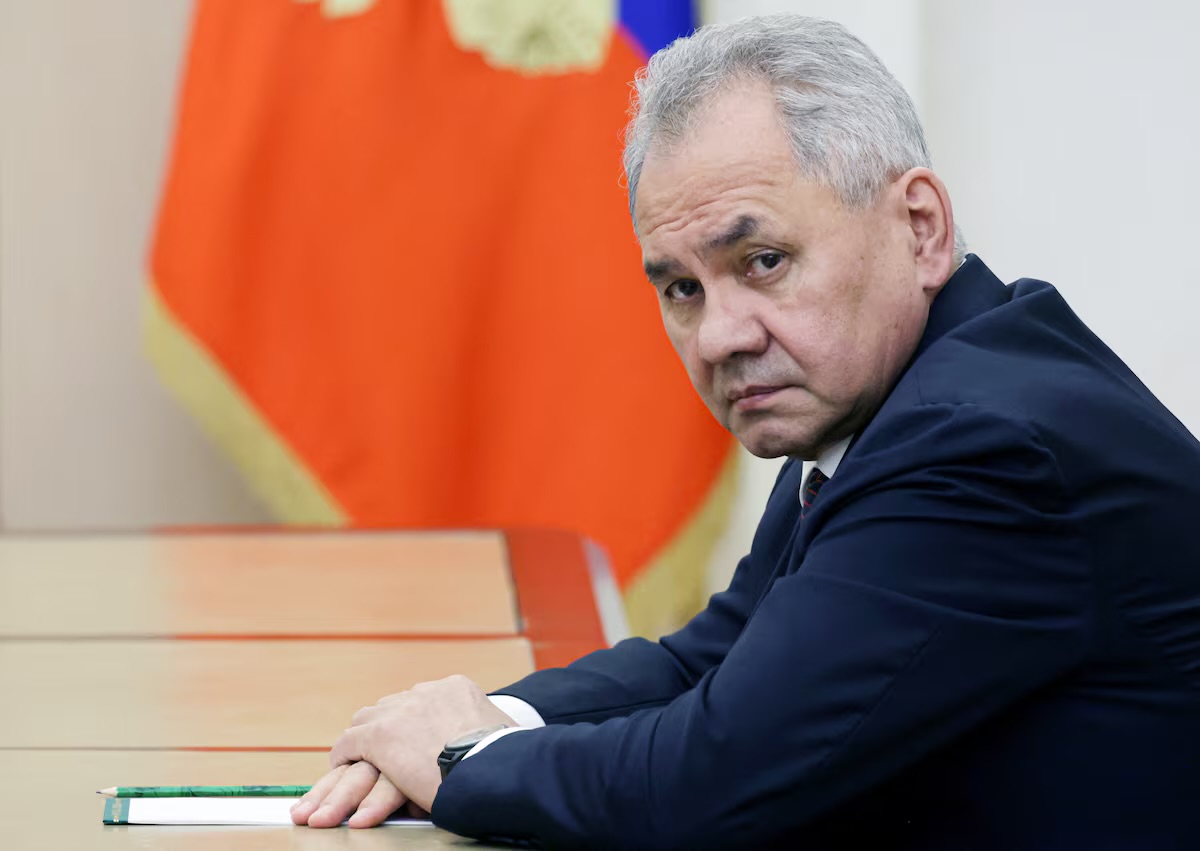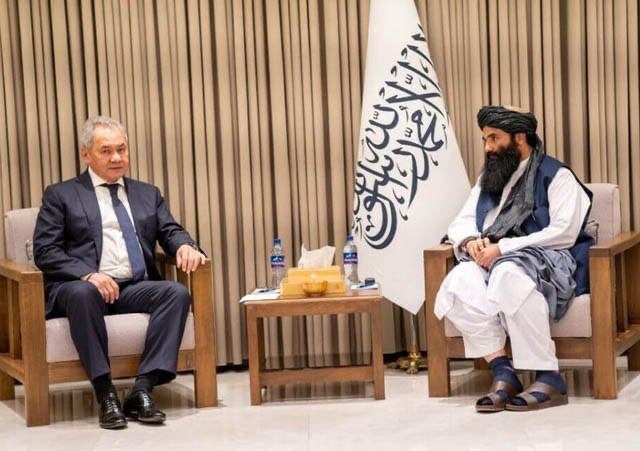Moscow has expressed its intent to deepen its cooperation with Afghanistan, with Russian Security Council Secretary Sergei Shoigu leading a delegation to Kabul to hold talks with Taliban leaders, as per Reuters.

Recently, Shoigu confirmed Russia's readiness to support Afghanistan in its pursuit of a lasting peace, emphasizing the need for constructive political dialogue between the two nations.
Shoigu, who previously served as Russia's defense minister, also reiterated the United States' responsibility in Afghanistan's reconstruction, citing Washington's extended military presence in the country.
"The U.S. should be the main entity to invest in the rebuilding of Afghanistan," Shoigu stated, criticizing the U.S. for not returning Afghan assets frozen since the Taliban's takeover in 2021.
He drew comparisons to the U.S.'s actions in other countries, such as Libya and Syria, and underscored the financial burdens that have been imposed on Afghanistan.
The Taliban leadership, including Deputy Prime Minister Abdul Ghani Baradar, seized the opportunity to request Russia's assistance in easing the financial pressure from Western sanctions. Baradar noted the challenges posed by asset freezes and travel bans against Taliban officials, urging Russia to help mitigate the negative impact of these measures on Afghanistan's economic growth.
Shoigu also pointed to potential economic cooperation between Russia and Afghanistan, particularly in the fields of mineral extraction and infrastructure development. He highlighted a proposed trans-Afghan railway project, with Russia expressing interest in helping to modernize Afghanistan's transportation network.

Russia's involvement in Afghanistan dates back to the Soviet Union era, which saw Soviet troops stationed in the country during the 1980s in support of the pro-Soviet Afghan government. While that conflict resulted in significant casualties for the Soviet Union, Russia remains keen on bolstering ties with Afghanistan, especially given the shifting geopolitical landscape following its invasion of Ukraine.
As part of this diplomatic shift, Moscow has indicated its willingness to engage more deeply with non-Western nations, a pivot prompted by the economic sanctions imposed on Russia due to the ongoing conflict in Ukraine. Shoigu's visit underscores Moscow's broader strategy to strengthen relationships in Asia and beyond, amidst ongoing tensions with the U.S. and its European allies.
The Russian Foreign Ministry recently announced its intention to remove the Taliban from its list of terrorist organizations, a move which would further normalize relations between the two countries. However, the legal procedures for this decision are still underway.
Russia’s outreach to Afghanistan signals an intent to assert its influence in the region, as it seeks to provide political and economic support while positioning itself as a key player in Afghanistan's recovery and development.
Follow Daryo's official Instagram and Twitter pages to keep current on world news.
Comments (0)